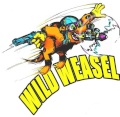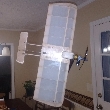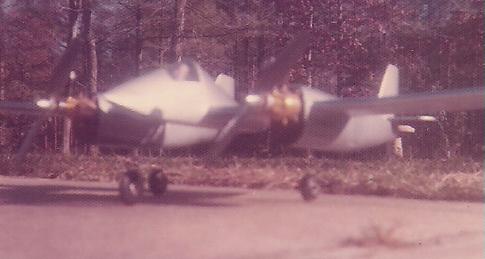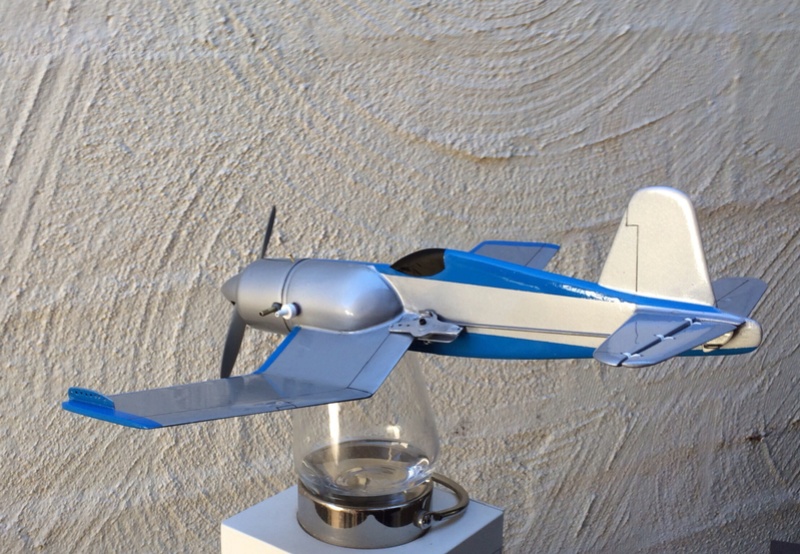Log in
Search
Latest topics
» My N-1R build logby roddie Today at 12:32 am
» Happy 77th birthday Andrew!
by akjgardner Today at 12:27 am
» TEE DEE Having issues
by TD ABUSER Yesterday at 9:43 pm
» Landing-gear tips
by roddie Yesterday at 6:17 pm
» Roger Harris revisited
by TD ABUSER Yesterday at 2:13 pm
» Tee Dee .020 combat model
by Ken Cook Yesterday at 1:41 pm
» Retail price mark-up.. how much is enough?
by Ken Cook Yesterday at 1:37 pm
» My latest doodle...
by roddie Yesterday at 10:43 am
» Chocolate chip cookie dough.........
by roddie Fri Nov 22, 2024 1:13 pm
» Purchased the last of any bult engines from Ken Enya
by sosam117 Fri Nov 22, 2024 11:32 am
» Free Flight Radio Assist
by rdw777 Fri Nov 22, 2024 9:24 am
» Funny what you find when you go looking
by rsv1cox Wed Nov 20, 2024 3:21 pm
Cox Engine of The Month
Lead-out position science. Is there any?
Page 1 of 1
 Lead-out position science. Is there any?
Lead-out position science. Is there any?
I got caught up in this because of my Mosquito build. So I started checking my other models and a variety of plans and came up with - there isn't any, although most tended to position the bell crank toward the leading edge but the guides position is all over the place.
In my scratch builds I always placed the bell crank slightly ahead of the wings N/S center line and the guide at the center of the wing. Always ( well almost always) worked for me.
There must be a reason why some models lay the relative positions of bell crank to wing tip guide differently? Got to have something to do with the moments between BC and tail/engine positions.
Bob
In my scratch builds I always placed the bell crank slightly ahead of the wings N/S center line and the guide at the center of the wing. Always ( well almost always) worked for me.
There must be a reason why some models lay the relative positions of bell crank to wing tip guide differently? Got to have something to do with the moments between BC and tail/engine positions.
Bob

rsv1cox- Top Poster




Posts : 11250
Join date : 2014-08-18
Location : West Virginia
 Re: Lead-out position science. Is there any?
Re: Lead-out position science. Is there any?
Yes Bob!!!
There is ABSOLUTELY a sound science to LO position--- and it is relative to the Mean Aerodynamic Center of the wing and there are some fairly complex computer formulations to determine the initial correct LO position and then later flight trim it to optimal
Much too complex for fellers like you and I ---who git too dizzy before we can figure if or if not the model crabs, hinges, comes in, droops a wing, or pulls like an anvil on a string....
while learning this stuff, the hardest concept for me was accepting that the Bell Crank can be ANY WHERE in the model--- and the ONLY real concerns are the CG and LO positions
Truth is ...for us sport fliers.... the PLAN is a good enough starting idea...the designer already built one or more prototypes and flew them (we hope) then added the LO rake detail and CG that was middle of the road flyable
BUT ---if you are interested...I think there are probably 5 or 6 threads on Stunt Hanger that describe all the WHY and then the Polar math and then links to the different programs that figure the science ----as well as the various ways to determine the Mean Aerodynamic Center for different wing plan-forms
Let me know if you want me to cull out what I think were the better threads on the subject---- as there are a lot of them that just get too into full scale aircraft engineering as each "expert" tries to make some point why the previous guy was full of whooey....such is the nature of forums sometines
There is ABSOLUTELY a sound science to LO position--- and it is relative to the Mean Aerodynamic Center of the wing and there are some fairly complex computer formulations to determine the initial correct LO position and then later flight trim it to optimal
Much too complex for fellers like you and I ---who git too dizzy before we can figure if or if not the model crabs, hinges, comes in, droops a wing, or pulls like an anvil on a string....
while learning this stuff, the hardest concept for me was accepting that the Bell Crank can be ANY WHERE in the model--- and the ONLY real concerns are the CG and LO positions
Truth is ...for us sport fliers.... the PLAN is a good enough starting idea...the designer already built one or more prototypes and flew them (we hope) then added the LO rake detail and CG that was middle of the road flyable
BUT ---if you are interested...I think there are probably 5 or 6 threads on Stunt Hanger that describe all the WHY and then the Polar math and then links to the different programs that figure the science ----as well as the various ways to determine the Mean Aerodynamic Center for different wing plan-forms
Let me know if you want me to cull out what I think were the better threads on the subject---- as there are a lot of them that just get too into full scale aircraft engineering as each "expert" tries to make some point why the previous guy was full of whooey....such is the nature of forums sometines

fredvon4- Top Poster


Posts : 4012
Join date : 2011-08-26
Age : 69
Location : Lampasas Texas
 Re: Lead-out position science. Is there any?
Re: Lead-out position science. Is there any?
It's a science that I don't fully understand myself.. but the further "back" the tip-guide is.. the more it will yaw the airplane out/away from center-circle. This is often done in place of engine/rudder-offset.. but too far back will slow the model down. It does help with line-tension. You'll often see adjustable (fore/aft) lead-out guides added to C/L Stunt models to help "dial-in" their maneuvers.
EDIT: Conversely; a "Speed-Model" would not benefit from raked-back lead-outs.. or engine/rudder-offset because it needs to fly as fast as it can level.. with the least resistance.
EDIT: Conversely; a "Speed-Model" would not benefit from raked-back lead-outs.. or engine/rudder-offset because it needs to fly as fast as it can level.. with the least resistance.
 Re: Lead-out position science. Is there any?
Re: Lead-out position science. Is there any?
Check flyinglinesDOTorg.org:
http://flyinglinesDOTorg/orin.basiccl.html
Mr. Humphries makes it fairly easy to understand, or at least work out.
For my DPC clones, I built the models, dropped the bellcranks under the wings according to the plan. The leadout plate locations were fine-tuned/selected by glueing a leadout plate of roughly the kit plan to the broadside of a popsicle stick longer than the wing's chord at the leadout location.
The longer popsicle stick is laid against the wing bottom and held with a rubber band across the top of the wing. The length of the popsicle stick is enough that I can slide the jig back and forth against the wing until the model hangs just nose down from the lead-outs. Mark the wing, make a new lead-out plate, and glue it where the jig lead-out plate was.
If words don't work, I'll try to pop a picture up here.
http://flyinglinesDOTorg/orin.basiccl.html
Mr. Humphries makes it fairly easy to understand, or at least work out.
For my DPC clones, I built the models, dropped the bellcranks under the wings according to the plan. The leadout plate locations were fine-tuned/selected by glueing a leadout plate of roughly the kit plan to the broadside of a popsicle stick longer than the wing's chord at the leadout location.
The longer popsicle stick is laid against the wing bottom and held with a rubber band across the top of the wing. The length of the popsicle stick is enough that I can slide the jig back and forth against the wing until the model hangs just nose down from the lead-outs. Mark the wing, make a new lead-out plate, and glue it where the jig lead-out plate was.
If words don't work, I'll try to pop a picture up here.

944_Jim- Diamond Member




Posts : 2022
Join date : 2017-02-08
Age : 59
Location : NE MS
 Re: Lead-out position science. Is there any?
Re: Lead-out position science. Is there any?
Fred, you lost me at "relative to the mean aerodynamic center." 
Thanks guys, I'll do some research before I ask anymore dumb questions.
Bob
Thanks guys, I'll do some research before I ask anymore dumb questions.
Bob

rsv1cox- Top Poster




Posts : 11250
Join date : 2014-08-18
Location : West Virginia
 Re: Lead-out position science. Is there any?
Re: Lead-out position science. Is there any?
This won't answer the lead-out question, but is a simple enough MAC explanation that I understood it without even using my toes.





wha-tah-hey- Rest In Peace

- Posts : 264
Join date : 2013-12-04
Location : Elgin, Al
 Re: Lead-out position science. Is there any?
Re: Lead-out position science. Is there any?
Hey, thanks for that. A thousand words IS worth a picture. Archiving it.
But Jim, If you have a picture...............
Bob
But Jim, If you have a picture...............
Bob

rsv1cox- Top Poster




Posts : 11250
Join date : 2014-08-18
Location : West Virginia

wha-tah-hey- Rest In Peace

- Posts : 264
Join date : 2013-12-04
Location : Elgin, Al
 Re: Lead-out position science. Is there any?
Re: Lead-out position science. Is there any?
I can see after reading this i will have a problem next build with LO positioning , so far i have not that I know of ? ? 


getback- Top Poster



Posts : 10442
Join date : 2013-01-18
Age : 67
Location : julian , NC
 Re: Lead-out position science. Is there any?
Re: Lead-out position science. Is there any?
It's more involved for a stunt ship because it flies at so many different attitudes during the course of a stunt pattern. But for just keeping it in the air and even simple loops and such, the following rule of thumb will do the job for that one aspect of trimming: Suspend it from the leadouts so the elevator is neutral. Back off and look at the fuselage. It should be pointing 2 or 3 degrees nose-down. A little more is fine for planes like this, and maybe safer because it will help keep the lines tight after power cuts, when the airspeed slows to where the rudder is no longer turning it out.
Rusty
Rusty
_________________
Don't Panic!
...and never Ever think about how good you are at something...
while you're doing it!
My Hot Rock & Blues Playlist
...and never Ever think about how good you are at something...
while you're doing it!
My Hot Rock & Blues Playlist

RknRusty- Rest In Peace

- Posts : 10869
Join date : 2011-08-10
Age : 68
Location : South Carolina, USA
 Re: Lead-out position science. Is there any?
Re: Lead-out position science. Is there any?
getback wrote:I can see after reading this i will have a problem next build with LO positioning , so far i have not that I know of ? ?
 The less you know, the happier you are.
The less you know, the happier you are._________________
Don't Panic!
...and never Ever think about how good you are at something...
while you're doing it!
My Hot Rock & Blues Playlist
...and never Ever think about how good you are at something...
while you're doing it!
My Hot Rock & Blues Playlist

RknRusty- Rest In Peace

- Posts : 10869
Join date : 2011-08-10
Age : 68
Location : South Carolina, USA
 Re: Lead-out position science. Is there any?
Re: Lead-out position science. Is there any?
So, that's why I'm so happy. 
Maybe the leadout/bell crank positioning on this scratch built was the reason it flew so badly.

Bob
Maybe the leadout/bell crank positioning on this scratch built was the reason it flew so badly.

Bob

rsv1cox- Top Poster




Posts : 11250
Join date : 2014-08-18
Location : West Virginia
 Re: Lead-out position science. Is there any?
Re: Lead-out position science. Is there any?
Bob, it also can impact fuel delivery. If the plane is yawed nose out to the outside of the circle, this no longer has the plane flying tangent to the circle. Therefore, the pickup in the rear corner may not get fuel when the tank is almost emptied due to the fuel being pinned against the sidewall. Ideally we like to see the plane speed a few laps toward the end and cut clean. But, when the leadouts are back, the plane is yawed, the tanks are pointed in the same direction as the nose of the plane. The plane then speeds up, dies, at the last second runs again, speeds up, dies, over and over until no fuel is left. This can go on and on for several laps and is quite annoying.
The solution is to trim the plane so that it flies correctly but this might also need some more coaching. Shimming the rear of the tank outboard might also be necessary for continuous fuel delivery. This is why taking a tank apart and knowing where the fuel pickup ends and where it's soldered to the inside of the tank is imperative. Having a plane flying outboard tip high or low will also have an impact on fuel delivery issues which can greatly affect tank height especially if one is using a chicken hopper style tank.
Adjustable leadouts have been around for quite some time. Typically once the sweet spot is found, your almost never touching them again. I try and fly with the least amount of outboard yaw as possible. While it's been said that raking the lines back increases line tension, in a overhead maneuver it DECREASES line tension and plane gets loose up top. Moving the leadouts fwd increases up top line tension in the overhead maneuvers. You continue to move them forward until line tension is recognized but down lower you still have ample tension for the other maneuvers.
The solution is to trim the plane so that it flies correctly but this might also need some more coaching. Shimming the rear of the tank outboard might also be necessary for continuous fuel delivery. This is why taking a tank apart and knowing where the fuel pickup ends and where it's soldered to the inside of the tank is imperative. Having a plane flying outboard tip high or low will also have an impact on fuel delivery issues which can greatly affect tank height especially if one is using a chicken hopper style tank.
Adjustable leadouts have been around for quite some time. Typically once the sweet spot is found, your almost never touching them again. I try and fly with the least amount of outboard yaw as possible. While it's been said that raking the lines back increases line tension, in a overhead maneuver it DECREASES line tension and plane gets loose up top. Moving the leadouts fwd increases up top line tension in the overhead maneuvers. You continue to move them forward until line tension is recognized but down lower you still have ample tension for the other maneuvers.

Ken Cook- Top Poster

- Posts : 5640
Join date : 2012-03-27
Location : pennsylvania
 Re: Lead-out position science. Is there any?
Re: Lead-out position science. Is there any?
OK, if your plane is trying to fly straight and you have lines on it you automatically have pull. There is usually no real need for outside engine thrust or rudder offset. As a matter of fact you may need to DECREASE these if you use them and find that pull is less when flying high or overhead maneuvers (as in stunt).
Adjustable leadouts are great, especially if you try different length or diameter lines. Factors other than where leadouts exit the plane are not as important. You may want to place the bellcrank so that you cause minimum side loads on the leadout guides. I usually place mine as far forward as possible, but it is not a necessity.
Years ago, someone did a test on this and found that bellcrank position was not critical at all. Sorry, I can't remember the article and date.
Good luck.
George
Adjustable leadouts are great, especially if you try different length or diameter lines. Factors other than where leadouts exit the plane are not as important. You may want to place the bellcrank so that you cause minimum side loads on the leadout guides. I usually place mine as far forward as possible, but it is not a necessity.
Years ago, someone did a test on this and found that bellcrank position was not critical at all. Sorry, I can't remember the article and date.
Good luck.
George

gcb- Platinum Member

- Posts : 908
Join date : 2011-08-11
Location : Port Ewen, NY
 Re: Lead-out position science. Is there any?
Re: Lead-out position science. Is there any?
It was Jim Page 13 .... https://www.coxengineforum.com/t7115p300-cef-speed-contest-design-discussions?highlight=REED+SPEED 


getback- Top Poster



Posts : 10442
Join date : 2013-01-18
Age : 67
Location : julian , NC
 Similar topics
Similar topics» Baby Ringmaster fever
» New acquisition
» Ebay Ringmaster Resto (finishing pics!)
» Engine Position
» Lead Out Wire
» New acquisition
» Ebay Ringmaster Resto (finishing pics!)
» Engine Position
» Lead Out Wire
Page 1 of 1
Permissions in this forum:
You cannot reply to topics in this forum

 Rules
Rules







